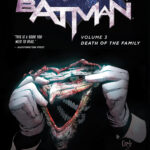“Our Family Wedding” presents a promising premise for comedic exploration: the union of a Mexican-American woman and an African-American man, setting the stage for inevitable cultural clashes. However, the film, starring a diverse Cast Of Our Family Wedding members, unfortunately, resorts to sitcom-level humor, missing opportunities for deeper comedic and thematic resonance. The movie feels as though it’s perpetually on the verge of a laugh track, relying on overacted arguments and predictable scenarios rather than genuine wit. Even the physical comedy, represented by multiple wedding cake destructions – two full incidents and one partial – feels forced rather than genuinely funny.
At the heart of this matrimonial narrative are Lucia Ramirez (America Ferrera), a Columbia Law student, and Marcus Boyd (Lance Gross), a Columbia med school graduate. Their plans to relocate to Laos for Marcus’s work with Doctors Without Borders are complicated by family secrets. Lucia has kept her cohabitation with Marcus from her traditional mother (Diana Maria Riva), who expects virginity until marriage, and her father Miguel (Carlos Mencia), who would be disappointed by her dropping out of law school. In a plot element that defies expectations only in its lack of originality, Lucia is revealed not to be pregnant.
Marcus’s father, Brad, played by a slimmed-down Forest Whitaker, is introduced as a successful Los Angeles all-night DJ. His affluent lifestyle is showcased through his large hillside house, complete with a pool and Jaguar – markers of success in his profession. Miguel, Lucia’s father, mirrors this affluence, owning a luxurious home and indulging in classic car restoration alongside his towing service business. Their initial encounter is a contrived “meet cute” where Miguel tows Brad’s Jaguar due to a staff shortage at his company.
The fathers’ subsequent meeting, triggered by their children’s wedding announcement, quickly devolves into exaggerated insults and physical threats. These staged arguments, typical of sitcom dynamics, lack authenticity. The script manufactures their conflict, resulting in unconvincing and repetitive feuds. The families’ reactions, characterized by hand-wringing and pleas for calm, further emphasize the artificiality of the central conflict. The ongoing feud between Brad and Miguel feels both initially weak and increasingly tiresome as the film progresses.
The film’s attempts at family conflict resolution also feel superficial. Lucia’s anxiety about her mother discovering her premarital sexual activity is quickly resolved with minimal drama, becoming almost an afterthought. Brad’s supposed embarrassment about his father dating younger women leads to a farcical situation when Brad’s father brings a date to a family dinner who is revealed to be Lucia’s former softball teammate. This revelation, rather than causing significant disruption, barely registers a reaction. Similarly, Lucia’s grandmother’s faint upon seeing her fiancé is black is promptly forgotten after she recovers, with no real exploration of underlying prejudices. Even a softball game intended to unite the families is poorly executed, lacking clarity in team assignments and game progression.
Despite these narrative shortcomings, the cast of Our Family Wedding does offer some bright spots. America Ferrera delivers a charming performance as Lucia, portraying her with warmth and spontaneity. Lance Gross, as Marcus, handles the role of the ideal fiancé with understated grace, avoiding overacting in a potentially bland part. Regina King stands out as Brad’s lawyer and admirer, bringing intelligence and depth to her scenes. Her character is portrayed as sharp, sympathetic, and professionally stylish.
In conclusion, “Our Family Wedding,” despite its appealing cast of Our Family Wedding and initial premise, is ultimately a lightweight and forgettable comedy. It feels awkward for the actors due to its contrived plot and lacks genuine comedic substance. For a more successful exploration of similar themes, consider “Nothing Like the Holidays” (2008), which handles family dynamics and cultural nuances with greater depth and authenticity.


